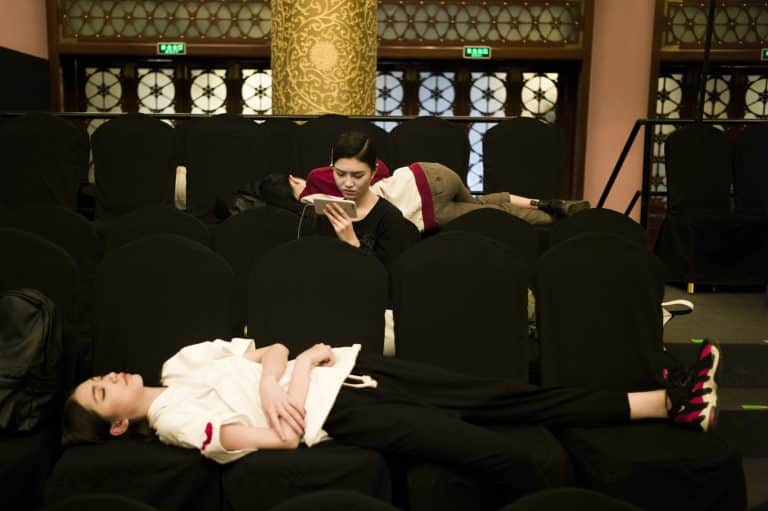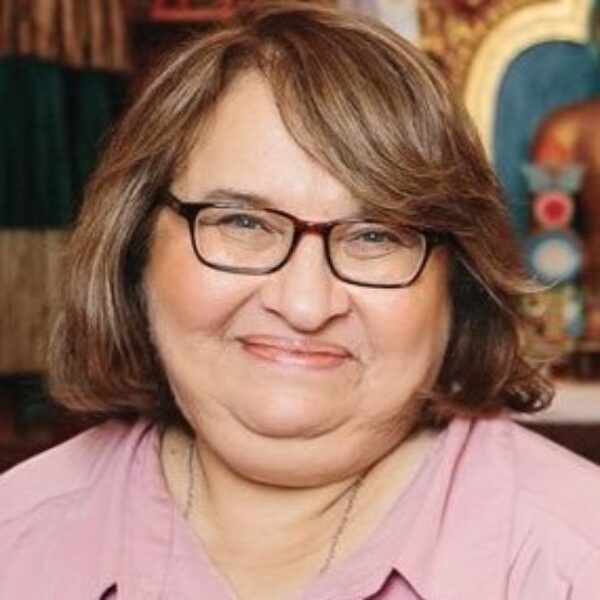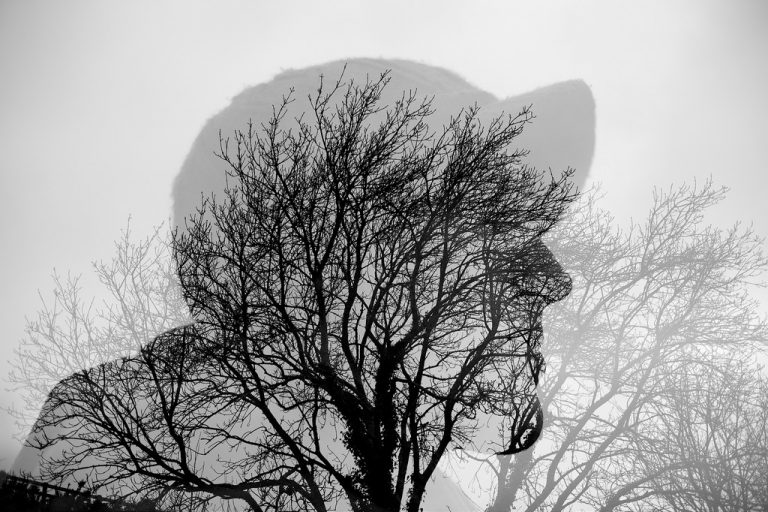
Image by Fred Dufour/Getty Images, © All Rights Reserved.
We Can’t Survive in a State of Constant Agitation
Since the election, many in my community have been caught up in a frenzy of politics. Even those who do not follow the ups and downs of national policy cannot help but feel the agitation around them. The relentlessness of it has caused many to fall into despair. No matter what our level of interest in the daily world of politics, I really believe that attempting to encounter the world from a place of love is an important contribution to self-care in this time of turmoil.
Jeanine, a woman I met while teaching, described how her morning routine has become much different after election day. Now when the alarm on her phone sounds, she rolls over in bed and grabs her cellphone. She wakes up in a rising state of fear about what might have happened while she has been asleep. Almost before her mind has surfaced to consciousness she starts scrolling through the news. Jeanine scans through Twitter and Facebook, her eyes taking in bulletins about lies being told, doubts about the motives of people in power, angry statements and threats from foreign countries, along with sarcasm, irony, and mockery.
As her mind opens to the day, she absorbs the aggressions taking place in foreign lands, assaults on civil rights, and the other alarming news she finds there. This parade of horrors rivets her and often she loses track of time. She startles when she discovers that an hour or more has gone by while she remained fixed in bed, a glowing screen inches from her eyes, following links to news sites and watching video clips of outrageous statements. When she sees the time, she jolts away in a hurry knowing if she doesn’t rush she might be late to work.
Even leaving the bed does not loosen the grip of this. Jeanine described making her morning tea with her eyes still stuck on her phone and sometimes brushing her teeth with one hand and the phone in the other. Although this morning habit exhausts her before she leaves the house, Jeanine said that she feels she must be vigilant. If she ignored these events she would not be doing her duty as a citizen.
This brings up the problem of how to stay informed without becoming overloaded. She would not respect herself if she turned a blind eye to the painful truths of the world, but the world breaks her heart. This habit does not do anything to help her change the things she is so concerned about. In many ways it substitutes for action.
I saw a lot of myself in Jeanine and had discovered that what I needed was to try to root my contact with the world in love. One might say that love is not a response powerful enough for these times, and that vigilance, resistance, and action to defend one’s values are more appropriate stances.
Yes, actions are important; they are absolutely essential, in fact. But I don’t believe we can survive for long in a state of constant agitation. Our bodies and hearts need rest to replenish stores of energy. This is something best done from a place of love.
When a change in law or policy harms us, we may feel powerless and discarded, unworthy of love. Experiencing that helps us empathize with the suffering of others. We may feel heartbroken when we see people so battered by circumstances and lack of opportunity that they feel that they have nowhere to turn. And we may feel a deep love for the planet, and recent actions to discredit climate change might be the cause of our anxiety.
In that way love presents itself as risk, as it often does when you love another. The love you feel causes you to care deeply and when you do, you may take on some of the hurt that your beloved feels. Love can also protect you. It is love that is the point of contact for how much we care about what happens to ourselves as well as those around us.
When Jeanine and I talked about this she was at first resistant to protecting herself. She saw that as selfish and weak when so much she cared about was at stake. I agreed that it was important to stay engaged, but I asked her to consider how her fixation on the news sapped her from taking actions to oppose what upset her.
She began the day in a state of agitation and was exhausted by the time she came home and then watched more news before she went to bed. Where was the time in her day to take care of herself? Where was the energy and focus to break this grip on what was happening outside of the world she could affect, so that she could choose to act to stop the initiatives she opposed?
I suggested that she place the phone in another room and use an alarm clock to wake up in the morning. That way she would have to make a conscious decision when she admitted the world in. Jeanine, acting like an addict, said she couldn’t possibly do that because she needed to know immediately. As she said that, she started to laugh at how exaggerated her reaction was. “I’m not the Secretary of State!” she said.
She decided she’d try to restore her former morning routine of getting up, stretching, putting on some music, and taking a shower. In her bathrobe, she’d make a cup of tea. After that half hour had passed, she could decide if she wanted to check the news on her phone. The news would not control her day and her mood if she remembered to create a boundary around it.
It is less than a year since the election and many people I speak with are already exhausted and hopeless, thinking of giving up because their constant state of alarm is debilitating and discouraging. I have compassion for that exhaustion and feeling of futility — I’ve been there. Yet I also believe that we can be energized by love.
Finding common ground with others who share our values and taking collective actions that express those strongly held beliefs reminds us of the good in the world and the good in others. If we allow the bad news to be the only news we hear, we may give up the fight, which would be the most debilitating of all actions. The best way to stay engaged is to make a choice when and how to do so — and to do so from a balanced stance of love for ourselves and love for the world, at the nexus where we can draw those two together in actions that connect both.


Share your reflection